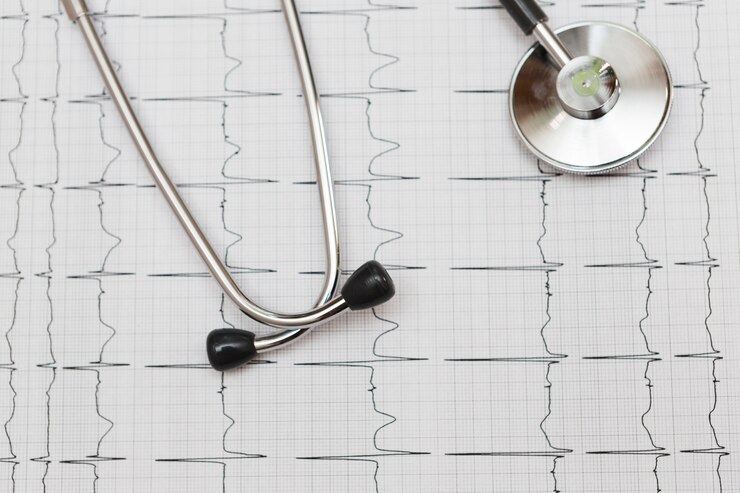When it comes to diagnosing heart conditions, one of the most common and effective tools used is the Electrocardiogram (ECG). At NDC Diagnostic Centre, we use state-of-the-art ECG machines to help patients understand their heart’s health. An ECG is a simple, non-invasive test that tracks the electrical activity of the heart, offering insights into its rhythm, rate, and overall condition. In this blog, we’ll explore what an ECG is, how it works, and why it is important for your health.
What is an ECG?
An Electrocardiogram (ECG) is a test that measures the electrical signals produced by your heart every time it beats. Your heart is essentially a pump, and to work properly, it requires electrical impulses that control the rhythm and pace of each beat. The ECG provides a visual representation of these impulses, recording the time intervals between each heart beat and the pattern of electrical activity in the heart.
Doctors use ECGs to detect a variety of heart-related problems, such as arrhythmias (irregular heartbeats), heart attacks, and heart disease. The test is quick, painless, and safe, making it an ideal diagnostic tool for a wide range of patients.
How Does an ECG Work?
An ECG works by placing small electrodes on the skin that detect the electrical signals produced by the heart. Typically, these electrodes are placed on the chest, arms, and legs. The electrodes are attached to wires that connect to the ECG machine, which then records the electrical activity on a monitor or printout.
The heart’s electrical activity is divided into waves, with each part of the wave corresponding to a specific stage of the heart’s pumping action. The primary waves seen in an ECG are:
- P wave: This wave shows the electrical impulse as it moves through the atria (the upper chambers of the heart), causing them to contract.
- QRS complex: This represents the electrical impulse as it moves through the ventricles (the lower chambers), leading to their contraction.
- T wave: This wave represents the recovery of the ventricles after they have contracted.
The ECG machine records these waves, and a doctor can analyze them to check for any irregularities, such as abnormal rhythms or signs of heart damage.
Why is an ECG Important?
An ECG provides valuable information about the heart’s health. It can detect:
- Arrhythmias: Irregular heartbeats, such as tachycardia (fast heartbeat) or bradycardia (slow heartbeat).
- Heart Attack: By showing changes in the heart’s electrical patterns, an ECG can help identify whether a heart attack has occurred or if the heart is under stress.
- Heart Disease: Conditions like ischemia (reduced blood flow to the heart) and enlargement of the heart chambers can be detected using an ECG.
- Electrolyte Imbalance: An ECG can also indicate if there are imbalances in the body’s electrolytes, which are essential for proper heart function.
What to Expect During an ECG
An ECG test is straightforward and doesn’t require any special preparation. You will be asked to lie down on an examination table while the technician places the electrodes on your body. The procedure takes only a few minutes. Afterward, the ECG results will be analyzed by a doctor, who will discuss any findings with you.
It’s important to remember that an ECG is just one part of the diagnostic process. If any irregularities are found, your doctor may recommend further tests or procedures to gain a more complete picture of your heart’s health.
Conclusion
In summary, an ECG is a simple and effective test that helps doctors assess your heart’s electrical activity and diagnose a variety of heart conditions. At NDC Diagnostic Centre, we offer reliable and accurate ECG testing to ensure that our patients receive the best possible care. If you’re experiencing any symptoms or have concerns about your heart health, an ECG is a great way to start. Always consult with your doctor to understand your heart health and take the necessary steps to keep it in good shape. Regular heart health check-ups can be a key part of living a long and healthy life.




